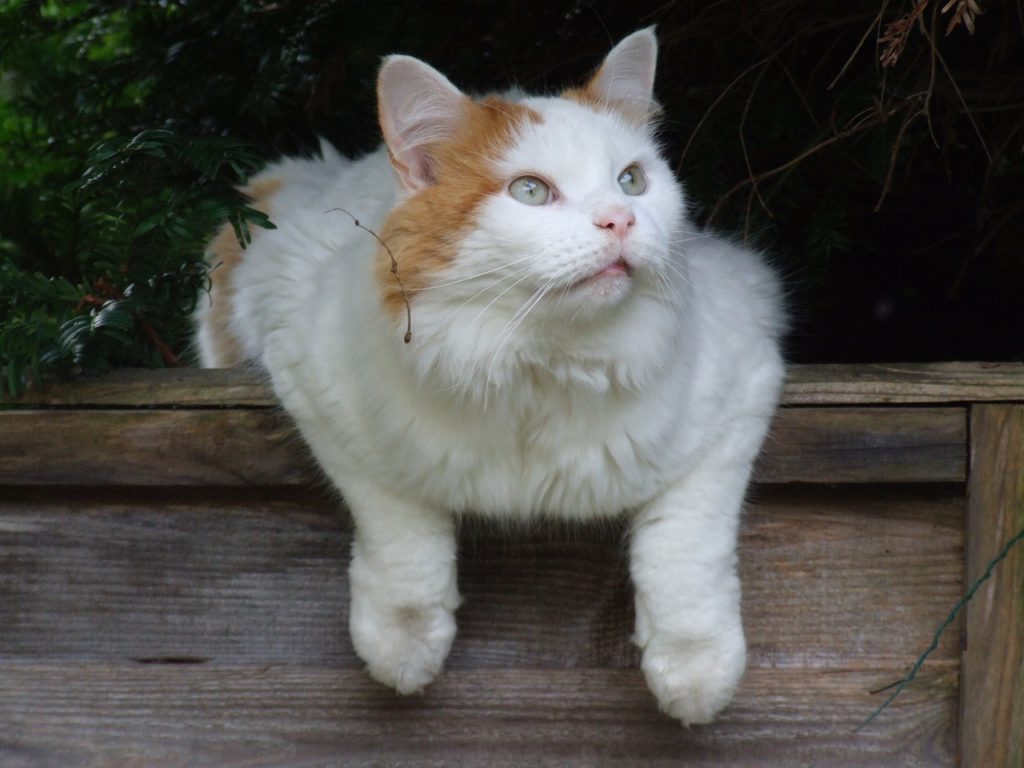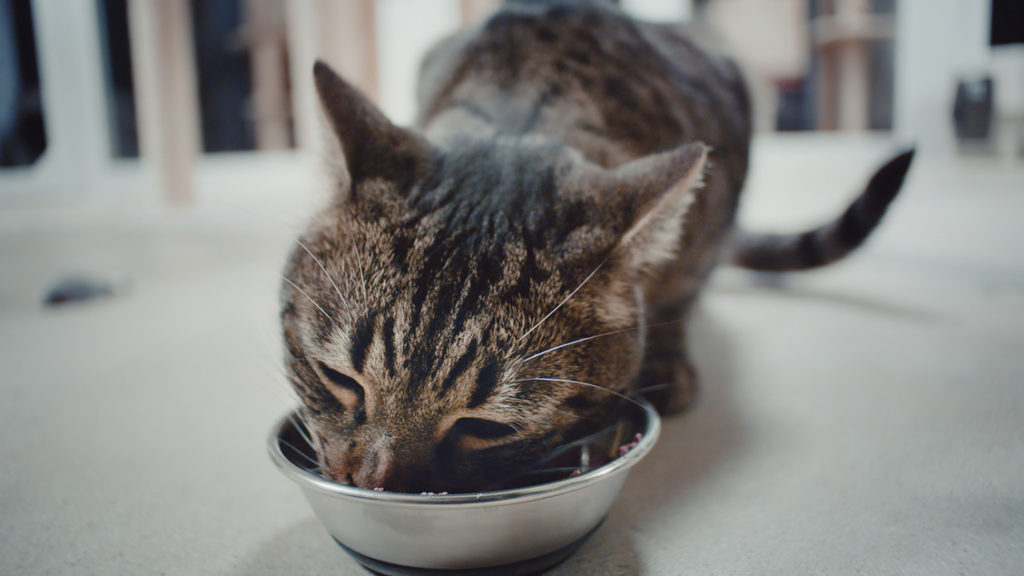Cat Cancer Symptoms
Share

We don’t talk about it a lot, but did you know that cats are just as likely to develop cancer as our dogs? In fact, nearly 6 million cats are diagnosed with some type of cancer EVERY YEAR, according to FetchACure!
We learned the hard way. Our beloved Kyra is suspected of having cancer, but she is too weak to have a biopsy done, so we can’t tell for sure.
She really didn’t have many symptoms – she just stopped sleeping on my head in the night (which is highly unusual during winter), but she played normally, she ate and drank, she had no signs of pain (other than the standard senior cat issues). And then, out of the blue, she lost nearly half her body weight in less than a week.
By the time we got her into the vet (in a period of less than five days), she was already too weak to help. Now, we are doing what we can to mitigate symptoms and keep her pain-free.
If you have a cat, please learn which symptoms are signs of possible trouble. Here are the top signs of cancer that you need to watch for:
1. Sores that don’t heal
There are a lot of reasons that sores may not heal, but one of the things you need to consider is cancer. Keep a close eye on any sores (especially in the mouth, which will be identified through a refusal to eat or excess salivation). If they don’t respond to veterinarian-recommended antibiotics or topical ointments, it’s time to get your cat in for a more detailed exam.

2. Chronic or persistent lameness
Cats will demonstrate lameness by refusing to play, making a noise (or crying) before standing, aggressive behavior towards you or other animals, refusal to use a litterbox, or even just refusing to play.
The same holds true for dogs. If your dog or cat is suddenly not interested in playing or groans before standing, or refuse to make the trek outdoors to potty, this is a serious warning sign.
3. Lumps and bumps in the skin
When Kyra started getting a bump on her chin, we watched it carefully. In fact, we were so focused watching that one that we didn’t notice the others on her belly, head and neck. It’s not possible to catch every thing going on with our cats, but please pay attention to these little bumps and sores that don’t heal.
4. Abnormal swelling
Keep an eye out for any unusual swelling. This is especially true of the stomach area. Masses can form that we don’t notice when we see our pets every day.
We take a lot of pictures of our pets, so we try to keep an eye out for changes using those.

5. Difficulty eating or swallowing
Kyra had recently lost interest in her food and when she did eat, it seemed to stick to her teeth. She would shake her head while eating, salivate more than usual, and while she didn’t seem to be in pain, we now suspect she was.
There are a lot of reasons this may happen, including dental disease, so please get your cat in for a regular check up.

6. Change in appetite or sudden unexplained weight loss
A sudden weight loss is reason for alarm, and it’s always worth a checkup. The same holds true for sudden weight gain (which can often be attributed to thyroid conditions). In some cases, it’s related to abdominal issues and in others it’s a possible sign of cancer.
7. Unusual or foul odors
If your dog or cat is suddenly a very stinky animal, it’s time for a vet check. There are numerous conditions that could be responsible for smelly breath (dental disease being the first possibility). Excessively stinky gas may be the result of a simple condition that can be handled via probiotics or prebiotics, but it could be indicative of much more nefarious conditions (like cancer).
It’s a tough topic. I’ve lost both a dog and a ferret to cancer. Both were very progressed cases and neither animal showed many noticeable signs of having it. This is just one more reason it’s important to get your pets in for regular check ups.










